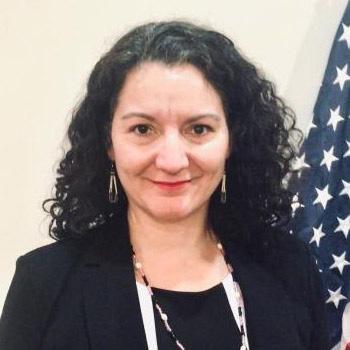
5 minute read
OAS Secretary General Urges Eradication of Violence Against Indigenous WomenTitle here
Luis Almagro has been fighting to win justice for victims of violence for nearly four decades, first in his home country of Uruguay and now on the international stage as a defender of Indigenous women.
Mr. Almagro the Secretary General of the Organization of American States (OAS), gave the keynote address on the opening day of the International Summit of the Americas on Violence Against Indigenous Women.
Advertisement
He said it is time for elected leaders of the countries in the Western hemisphere to put a stop to the deaths and disappearances.
The UN Declaration on the Rights of Indigenous Peoples says Indigenous women must be afforded freedom and human rights, but violence nullifies those freedoms, Mr. Almagro told Summit participants.
“As a result,” he said, “states should adopt the necessary measures, in conjunction with Indigenous Peoples, to prevent and eradicate all forms of violence and discrimination, particularly against Indigenous women and children.”
The Summit speech was not the first time Mr. has spoken out about the need to stop the murders and assaults that Canada’s National Inquiry into Missing and Murdered Indigenous Women and Girls determined to be a genocide.
In December 2019, he visited Canada to gain a first-hand perspective about the issues confronting Indigenous women in rural and remote communities. He ended that trip by urging the Canadian government to accelerate its action on the National Inquiry’s 231 Calls for Justice.
“I went to remote First Nations communities such as Kashechewan and Fort Albany in northern Ontario. Being on the ground, I became an eye witness, and I talked to witnesses, and I talked to victims of multiple forms of violence against Indigenous women, girls, and gender-diverse persons,” Mr. Almagro said at the Summit.
“Although we acknowledge the advances in Canada to redress this problem,” he said, “we also see that there are many challenges ahead.”
“We know that Indigenous women are the life givers, therefore they know how to heal the land and the people,” said Mr. Almagro. “That is why women must regain their place of power in our patriarchal society. As I declared during my visit in 2019, we need to heal the past so we can fix the present.”
The former Uruguayan foreign minister and ambassador is a lawyer whose rise to prominence included successfully fighting to repeal a law that granted amnesty to those who committed civil rights abuses and crimes during Uruguay’s civil-military dictatorship of 1973 to 1985, a time when torture and unexplained disappearances were rampant.
As head of the OAS, Mr. Almagro has reported on the systemic murder, torture, imprisonment, and rape of government opponents in Venezuela, and helped to launch an international investigation into whether crimes against humanity were taking place in that country.
He has also lobbied for human rights in Nicaragua and democratic rights in Bolivia. And he has been an ally of Indigenous women’s groups as they lead the fight to create a safer world for themselves and for their daughters, sisters, mothers, and aunties. (Continued on page 8)
- SAID LUIS ALMAGRO
(Continued from page 7)Among the most surprising findings of his trip to Canada, said Mr. Almagro was the reproductive injustice directed toward Indigenous women through forced sterilization and the human rights abuses taking place against Indigenous people in correctional facilities.
Those were themes that were echoed throughout the Summit by other speakers.
The United Nations 2030 sustainable development goals call for empowerment of Indigenous Peoples, Mr. Almagro told the summit.
“But how can we achieve sustainable development, and include Indigenous Peoples if we still have not stopped the prevalence of violence against indigenous women?” he asked. “I believe that now is the moment to create more awareness about this urgent problem in our hemisphere and emphasize the need to fix it.”
Significant gaps in gender equality remain, said Mr. Almalgro, and the disparities are sustained in Indigenous communities by widespread social and economic exclusion.
Indigenous women’s organizations across the Americas have been working to counterbalance these injustices, and the rest of us must do what we can to help them, he said.
- SAID MR. ALMAGRO
A report by the World Bank found that 43 percent of Indigenous people in Latin America were poor in 2011, meaning they were living on less than $5.50 US per day, and that 24 were extremely poor, meaning they were living on less than $1.90 a day. That was more than twice the rate of poverty for non-Indigenous people.
“Indigenous women suffer the most under these unjust conditions, leaving them more vulnerable to becoming victims of all forms of violence,” said Mr. Almagro.
“Indigenous women are resilient, but they are also vulnerable. They need advocates, they need allies,” said Mr. Almagro “Therefore, no man anywhere can turn a blind eye. Every one of us has a responsibility to confront violence and the attitudes that tolerate it. That is why it is time for all of us to look inside our own hearts and examine our own actions so we're going to stop our abusive behaviour and, instead, stand side by side with women to stop gender violence, especially against Indigenous Peoples.”

Luis Almagro, OAS Secretary General
In recent years, Latin America has seen an alarming increase in killings of environmental and social defenders, with Indigenous leaders the most targeted.
“The situation has worsened with COVID-19 and the lack of protection of their communities in isolated areas,” he said. “These cases of extreme violence must end. We must defend the defenders. I call on national authorities to take special actions to prevent such horrible acts.”
In addition, said Mr. Almagro the absence of the rule of law in some places has forced Indigenous people to flee their homes and become migrants, with Indigenous women carrying the largest burden of such displacement.








